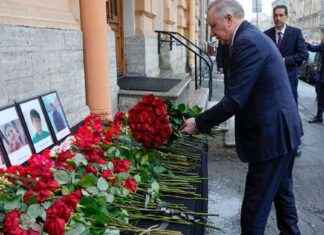The stay in prison, especially when it is long-lasting, involves a very strong emotional impact.
Therefore, both for social reintegration and work, carrying out activities and tasks is very important.
Among these activities, now in some centers, inmates will be able to receive basic financial education classes thanks to the agreement that Banco Santander, Penitentiary Institutions (IIPP) and the Foundation of the University of Cantabria have arrived for the study and research of the financial sector (
UCEIF), through the Santander Financial Institute (SANFI).
The prisoners of the Penitentiary Centers of Valencia-Antoni Asunción, Teixeiro (La Coruña), the Bicho (Cantabria) and Burgos will be the first four that may benefit from this agreement and in them some qualified professionals of Santander will be responsible for imparting the workshore for
Mortals-Educational Justice, an initiative that these institutions already launched nine years ago and that now reaches prisons for the first time.
Previously he had already served that collectives are financially vulnerable as children, elderly, social entrepreneurs or others at risk of exclusion, they will assimilate basic and practical economic concepts on day to day.
The idea is to make a kind of pilot test in these four penitentiaries and then be able to reach the rest of Spain.
“A few months ago we collaborated in a project promoted by the General Secretariat of Penitentiary Institutions and I proposed to provide among the prisoners our program Finance for mortals for the acquisition of competences in economic and financial aspects in the rehabilitation and social reintegration processes,” says Luis
Monge, Sustainability Director of Santander Spain.
“His answer was very positive and for that reason, before starting to give training in all the centers, we wanted to impart and evaluate in a few the elaborate agenda. The four selected centers are an excellent sample, by size, geographical location and inmate population”
, Add.
The workshops will be taught in two sessions, each of them of approximately 90 minutes.
The first, scheduled for this month of July, focuses on the possible labor outings of the participants and existing economic aid.
In addition, it will be deepened to clarify the differences between working as an autonomous, on their own or by others and inmates will learn to read and understand documents with which they will have to deal with their daily lives as bills and payroll.
The second session, called Learning to organize, is something more technical and it would be taught in September.
In it, students will discover basic financial products, learn to use online banking, know savings methods, indebtedness, intelligent consumption and will receive training to manage the personal and family budget or debts.
“Very dynamic, the tools available to the program are introduced, as well as videos and pills with continuous theoretical-practical examples, some in humor code and others with everyday experiences,” explains Begoña Torre, Director of Finance to
Mortal
One of the problems that can be intuited a priori about the workshop is the short time that there are in two sessions to get the inmates fully introduced into a complex world and with many edges as it is that of finance and the basic economy.
However, as Torre says, it is enough to achieve the main objective: “Losing the fear of asking and informed about basic issues of the economy and finances, which are necessary for the day to day and that the population in general thinks they are
Complicated and will not understand them. ”
Once the workshop is finished, raised as a pilot project, the direction will assess the needs of this collective.
“According to us the different centers, training and work are basic instruments for reintegration, since, once the penalty is fulfilled, it prepares them for a better integration in the work world. For this reason, the possibility is offered
Of working work in workshops by those who already perceive an economic retribution, “says Monge and adds:” With finance for mortals we want to raise awareness about the importance of having basic economic knowledge that allows them to make decisions in an informed and responsible manner. ”
Since its launch in 2012, finance for mortals has been considered one of the most important financial education programs at the national level, assessment in which both the Bank of Spain coincide and the National Securities Market Commission (CNMV).
From IIPP, its general secretary Ángel Ortiz wanted to thank Banco Santander as an institution and volunteers who have given classes in particular their involvement in the project and expects that “this first collaboration is the beginning of many others”.






